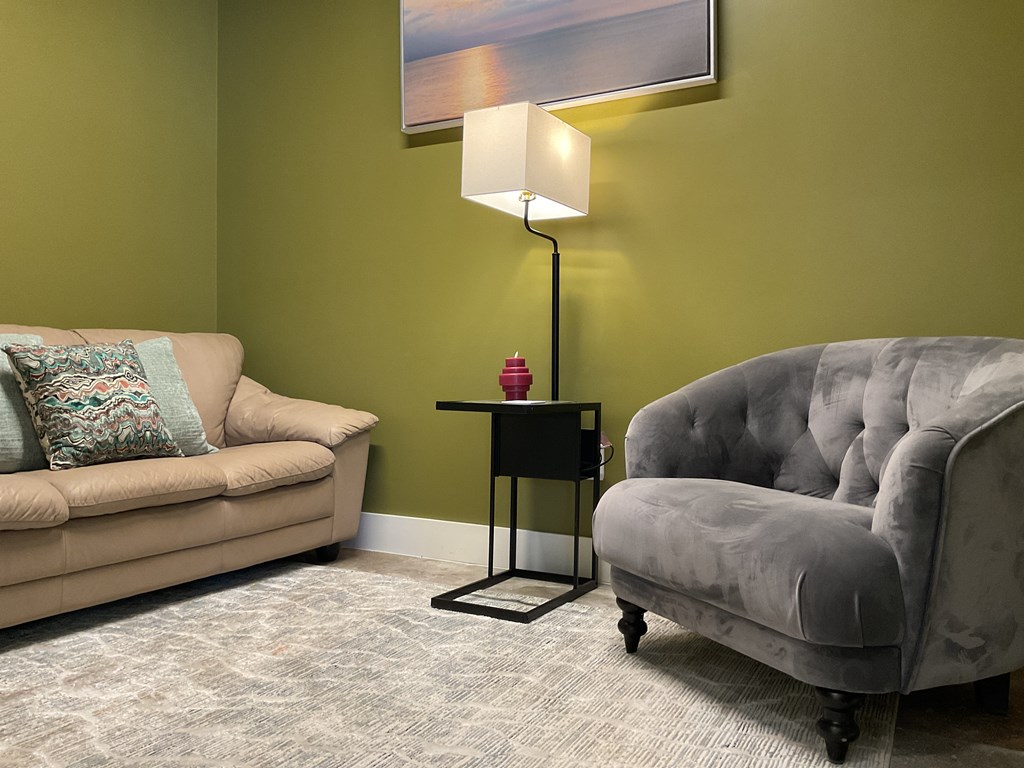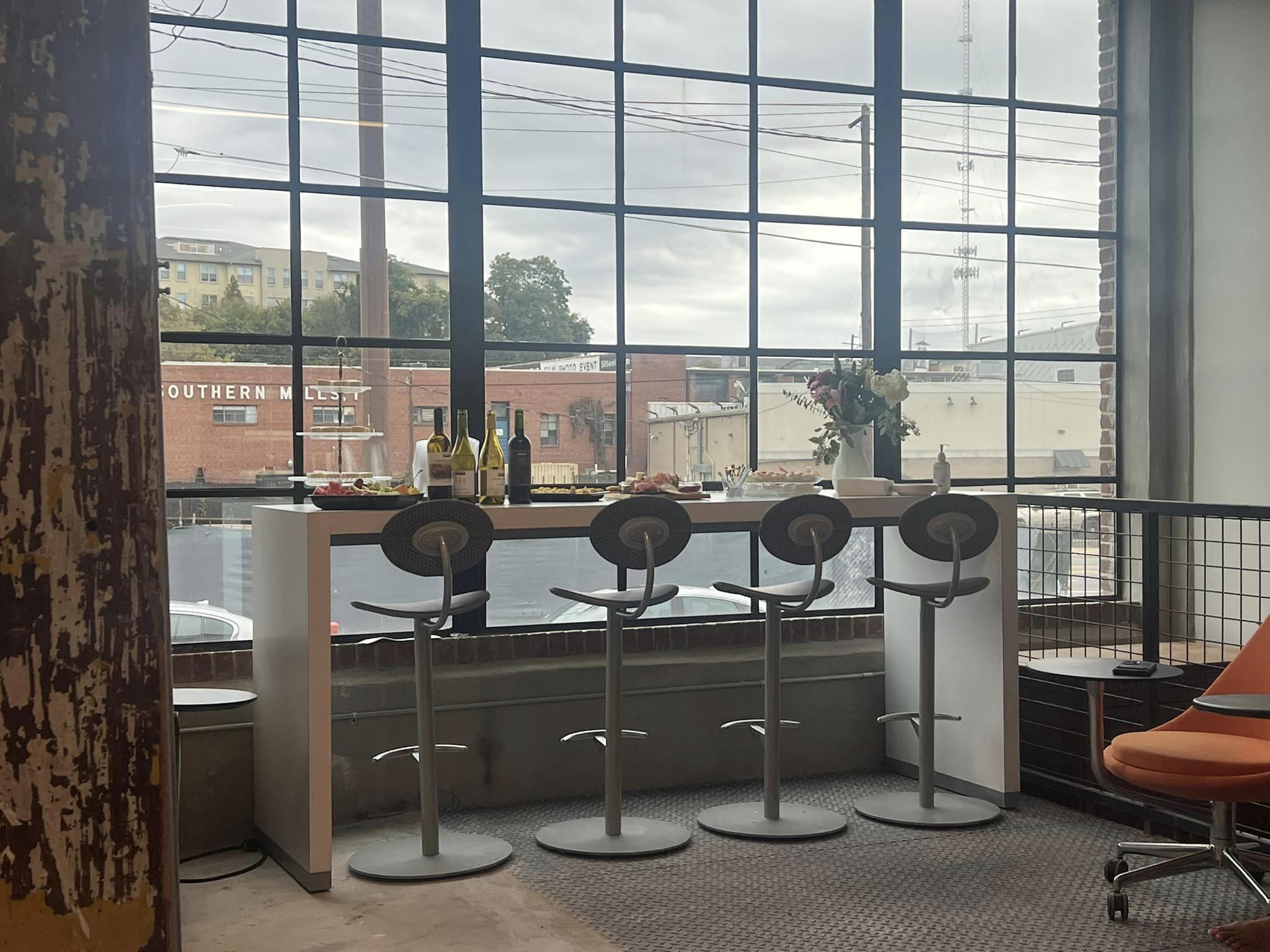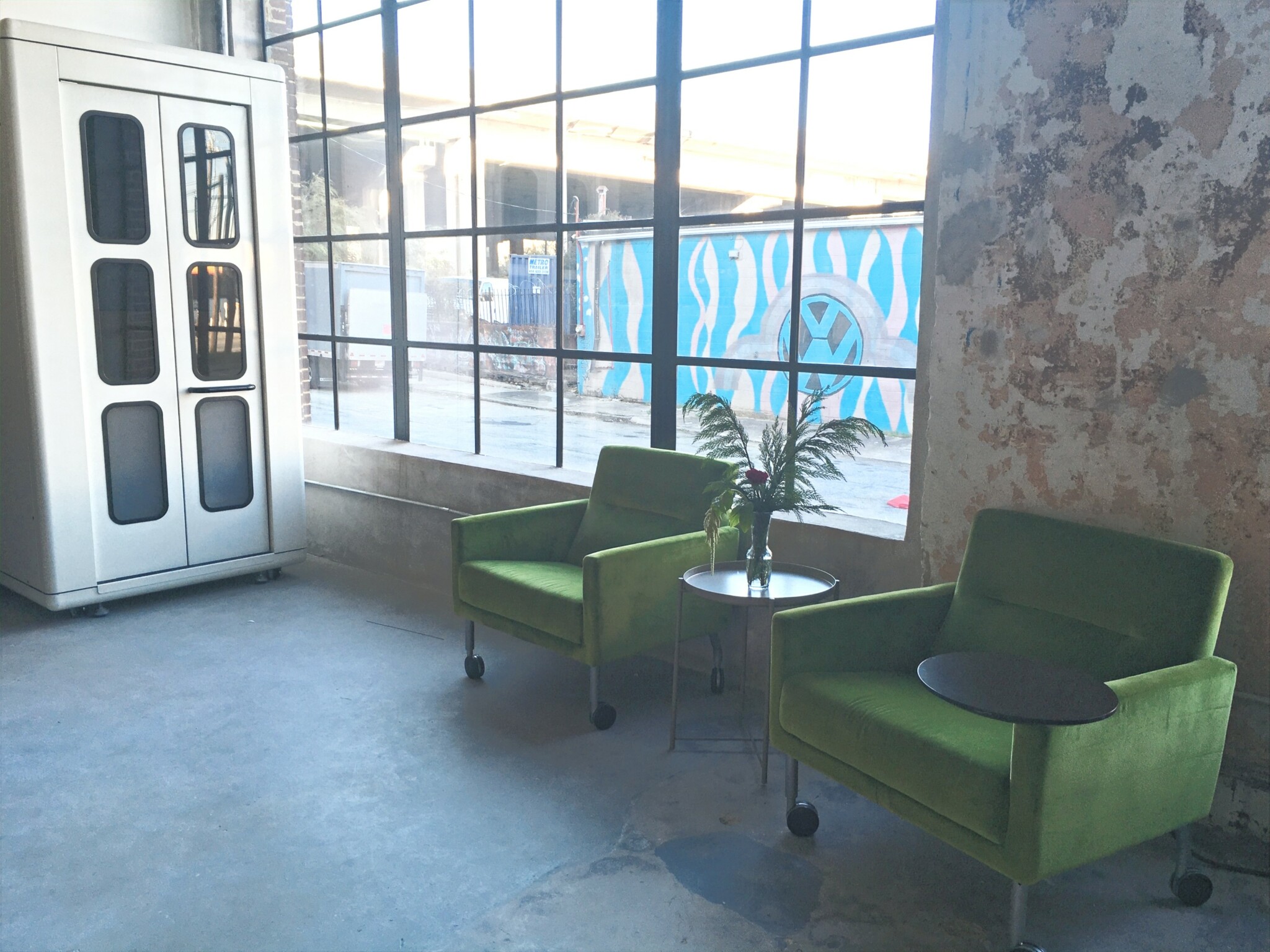We were lucky to catch up with Nakita Robinson, LMFT recently and have shared our conversation below.
Alright, Nakita thanks for taking the time to share your stories and insights with us today. We’d love to hear the backstory behind a risk you’ve taken – whether big or small, walk us through what it was like and how it ultimately turned out.
One of the biggest risks I’ve taken in my career was building Therapists Coworking by Epistamai. It wasn’t just a financial risk—it was a leap into uncharted territory.
As a licensed Marriage and Family Therapist, I understood firsthand the struggle of finding private, professional, and affordable office space. Many therapists, especially those in private practice, face an all-or-nothing dilemma: commit to an expensive lease for space they may not use full-time or settle for makeshift solutions that don’t offer the privacy and professionalism their clients deserve. I knew there had to be a better way, but when I looked around, I didn’t see anyone addressing the issue in a way that truly worked for therapists. So, I decided to build it myself.
The challenge? Everything. I wasn’t just leasing an office, I was creating a first of its kind coworking space specifically designed for mental health professionals. That meant navigating commercial leasing, overseeing construction, investing in security and privacy technology, and, perhaps the biggest challenge was convincing others to believe in something that didn’t yet exist. There were moments of doubt, moments where I wondered if I was taking on too much. But I kept moving forward, one decision at a time, because I knew this was something the therapist community desperately needed.
Now, Therapists Coworking by Epistamai is a reality. It’s in the heart of Adair Park in Southwest Atlanta, offering flexible, affordable, and private spaces for therapists to see clients without the burden of long-term leases. It’s more than just a space, it’s a movement to support mental health professionals in a way no one else has before.
Taking this risk meant stepping out of my comfort zone and into the unknown. But in doing so, I created something that not only supports therapists but also strengthens the communities they serve. And to me, that risk was absolutely worth it.
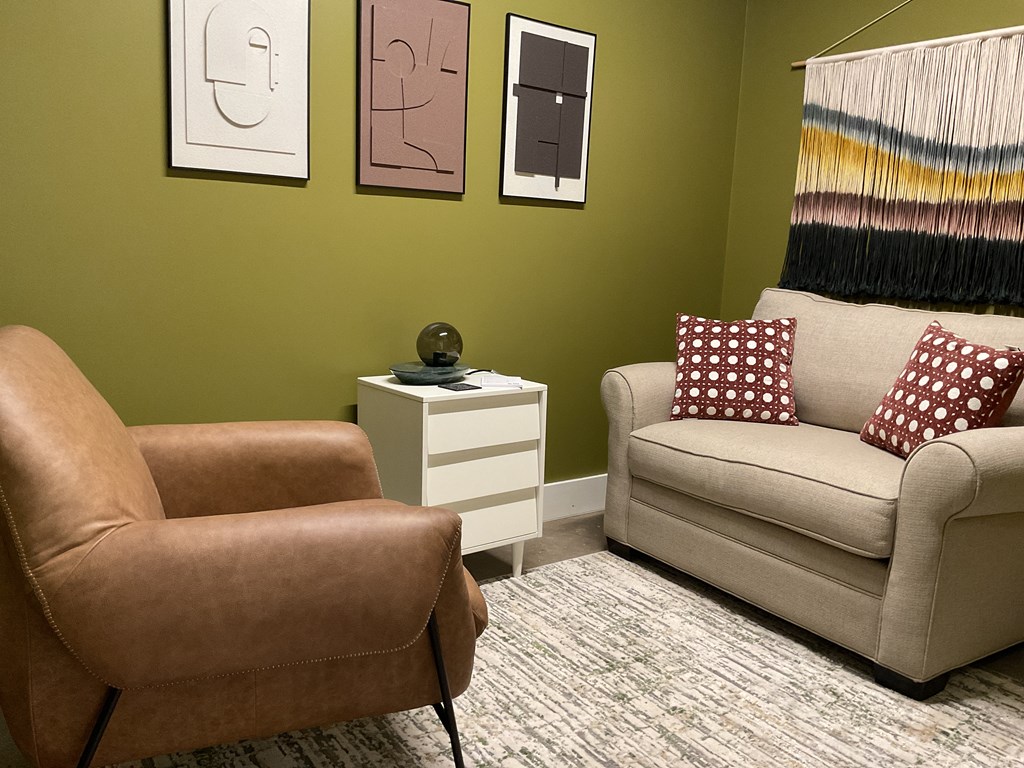
Great, appreciate you sharing that with us. Before we ask you to share more of your insights, can you take a moment to introduce yourself and how you got to where you are today to our readers.
I’m Nakita Robinson, a Licensed Marriage and Family Therapist, private practice owner, and the founder of Therapists Coworking by Epistamai. My journey into this work started with a deep passion for helping people navigate their relationships and mental health, but over time, I realized I was also drawn to solving the problems that therapists face in this field.
I launched my private practice, Epistamai, in 2017 as a fully telehealth-based practice, back when telehealth was still considered experimental. I saw the potential early on and built my entire business around it. But as I grew, I noticed another major gap in the industry: the lack of flexible, affordable office space for therapists.
Traditional office leases don’t work for a lot of us. Either you’re stuck paying for a space you don’t use full-time, or you’re piecing things together in a way that doesn’t feel professional or private enough for client work. I knew there had to be a better way.
That’s when I decided to create Therapists Coworking by Epistamai, a space designed specifically for therapists who need a high-quality, private, and flexible place to see clients without the long-term commitment of a lease.
At Therapists Coworking by Epistamai, we offer:
1. Private, soundproof therapy offices that can be booked by the hour.
2. A professional setting designed for therapists, with privacy and client experience in mind.
3. Flexibility, so you only pay for the space when you need it.
4. A supportive community of other mental health professionals, without competition or isolation.
It’s simple, you get access to a high-quality space when you need it, without the overhead or stress of maintaining a full-time office.
What makes this space different is that it was created by a therapist, for therapists. I didn’t just see a business opportunity, I lived this problem. I know what it’s like to need a professional space but not want to take on the financial burden of a full-time lease. Every decision I made in building this space was about solving that problem in a way that actually works for us.
I also have a passion for bringing things back to life, whether it’s helping to reactivate the Metro Atlanta Chapter of GAMFT or pioneering telehealth before it was widely accepted, I thrive in spaces where I can create opportunities for others to succeed.
Honestly, I’m most proud that this space exists. It’s giving therapists a real alternative to the traditional leasing model, and it’s proving that we can work in a way that’s both professional and sustainable. I love seeing therapists walk in and immediately feel like, this is exactly what I needed.
For therapists: If you’ve ever struggled with finding an office space that works for you, I built this for you. You don’t have to be locked into a lease that doesn’t make sense for your practice. You can have flexibility and professionalism.
For the community: Supporting mental health professionals means supporting the well-being of everyone. By giving therapists the right space to work, we make it easier for people to get the care they need.
Building this business was a risk, but it was worth it. And I can’t wait to see how it continues to grow and support our field.
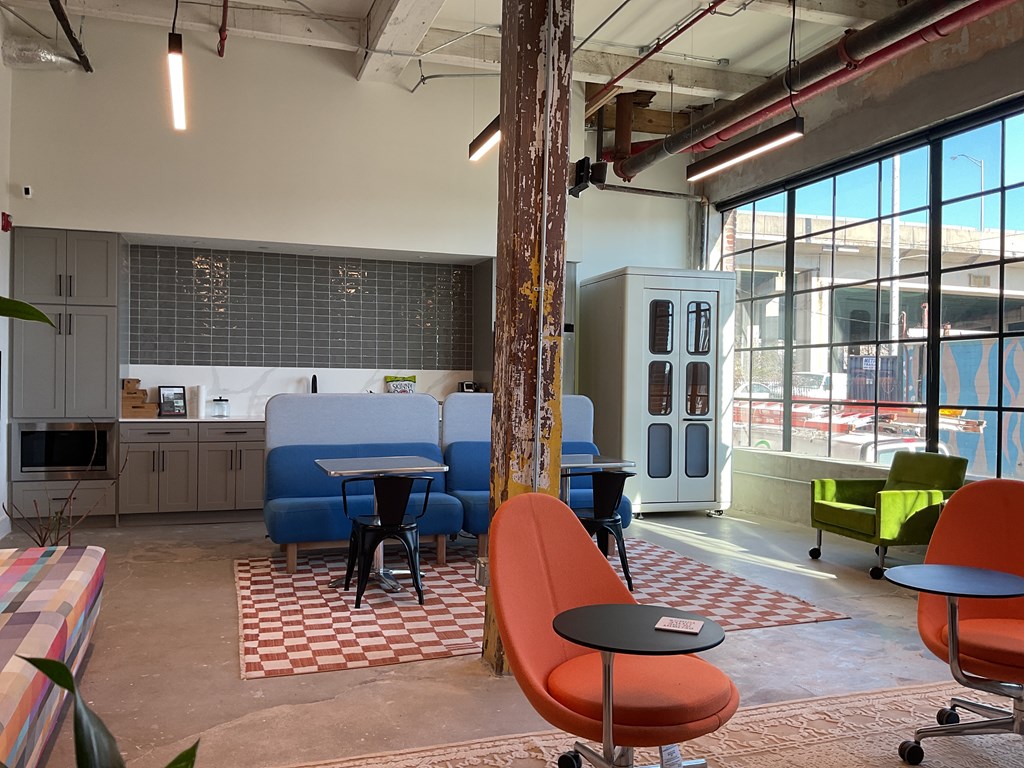
Have any books or other resources had a big impact on you?
There isn’t just one book or resource that shaped how I approach business, there have been several that have influenced different parts of my journey as both a therapist and an entrepreneur.
One that stands out is “The E-Myth Revisited” by Michael E. Gerber. It completely changed how I think about running a business. As therapists, we’re trained to be great at our craft, but no one teaches us how to run a business. This book helped me understand the difference between working in my business versus working on my business. It pushed me to move beyond just being a solo practitioner and start thinking like a business owner—structuring my work in a way that allows it to grow beyond just me.
I also love “Essentialism: The Disciplined Pursuit of Less” by Greg McKeown. When you’re an entrepreneur, it’s easy to feel like you have to do everything, but this book reinforced the importance of focusing on what truly matters. It helped me cut out distractions and zero in on building Therapists Coworking by Epistamai in a way that aligns with my vision, rather than getting caught up in things that don’t serve the bigger picture.
Beyond books, I follow a lot of business and real estate professionals who talk about commercial spaces and the coworking industry. While Therapists Coworking by Epistamai is designed specifically for mental health professionals, I’ve taken inspiration from coworking models in other industries and adapted them to fit the needs of therapists.
At the end of the day, my philosophy is simple: build something that works for the people you’re serving.
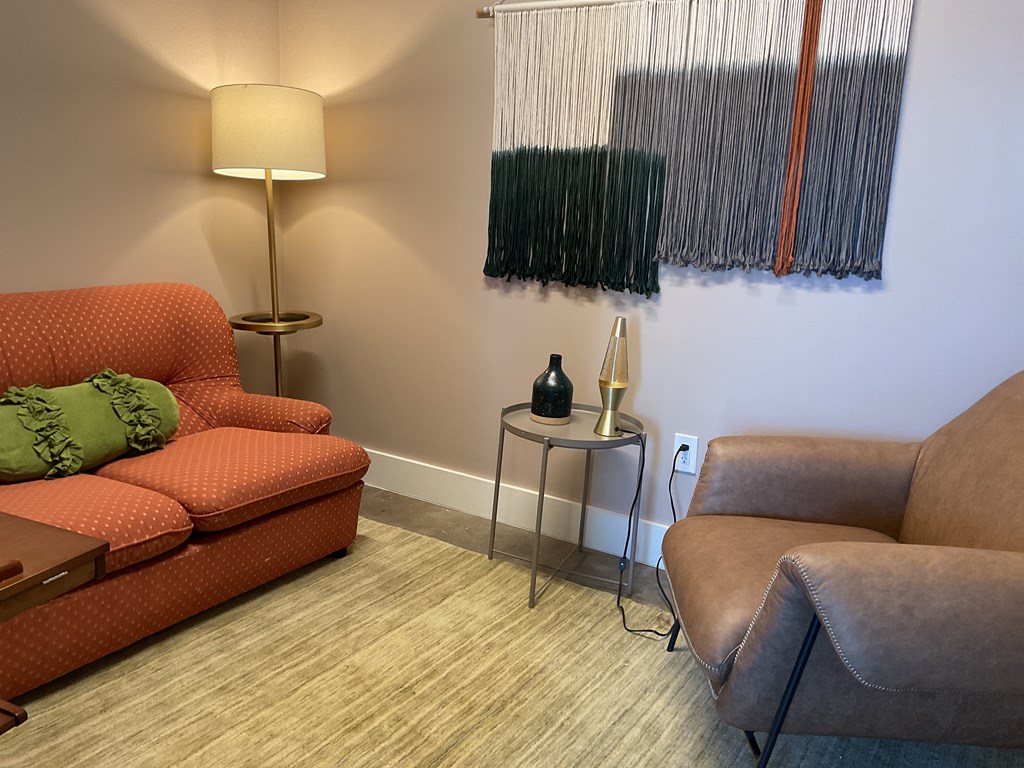
Other than training/knowledge, what do you think is most helpful for succeeding in your field?
Other than training and knowledge, I think the biggest things that help you succeed in this field are adaptability, community, and business sense.
Adaptability, because the industry is always changing. Mental health work doesn’t happen in a vacuum. Clients’ needs change, policies shift, and new ways of doing therapy pop up all the time. When I started my private practice in 2017 as a fully telehealth-based business, people thought I was crazy. Back then, telehealth wasn’t mainstream yet, but I saw where things were headed. That same ability to recognize gaps and pivot is what led me to create Therapists Coworking by Epistamai—because therapists were struggling to find office space that made sense for them. If you can’t adapt, you’ll find yourself stuck, while the industry moves forward without you.
Community because private practice can be isolating. Therapists spend so much time pouring into others, but we need support too. One of the hardest parts about being in private practice is the isolation. No coworkers, no casual hallway convos, no built-in team to bounce ideas off of. That’s why I’ve always been big on building community, whether it’s through Therapists Coworking by Epistamai, the Metro Atlanta GAMFT chapter, or just staying connected to other therapists. Success in this field isn’t just about what you know, it’s about who you connect with. Having people around you who understand the work makes all the difference.
Business Sense because therapy is also a business. This is the part a lot of therapists don’t like talking about, but it’s the truth. You can be the most amazing therapist in the world, but if you don’t understand how to run a business, you will struggle. Setting your rates, managing overhead, marketing yourself, all of that matters just as much as your clinical skills. I had to learn a lot of this the hard way, which is honestly part of why I built Therapists Coworking by Epistamai. I wanted to take at least one burden off therapists by giving them an office solution that works, so they could focus on their clients instead of stressing about long-term leases and overhead.
At the end of the day, being a great therapist isn’t enough. You gotta be flexible, surround yourself with the right people, and learn how to treat your practice like a business. If you can do those things, you’ll not only survive in this field but thrive.
Contact Info:
- Website: https://therapistscoworking.epistamai.net
- Instagram: https://www.instagram.com/Epistamai_
- Facebook: https://www.facebook.com/Epistamai/
- Linkedin: https://www.linkedin.com/company/epistamai/
